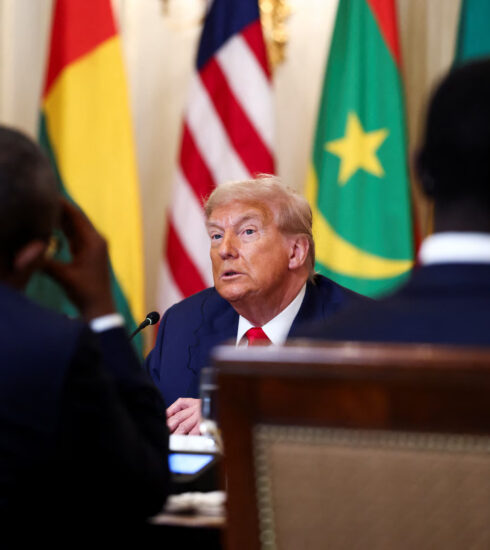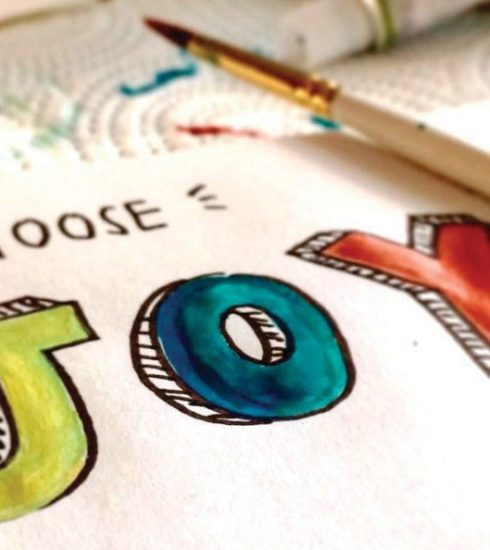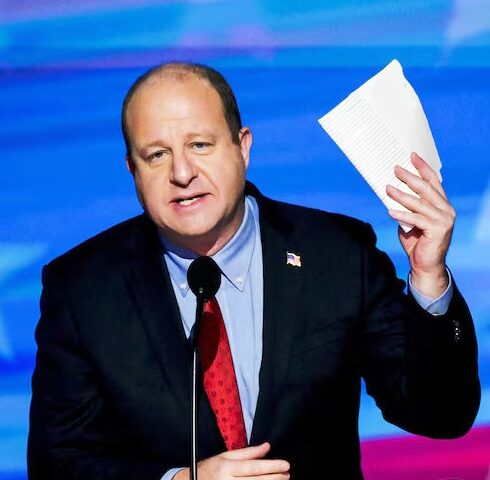The debate between Harris and Trump. Who Came Out Tops ?
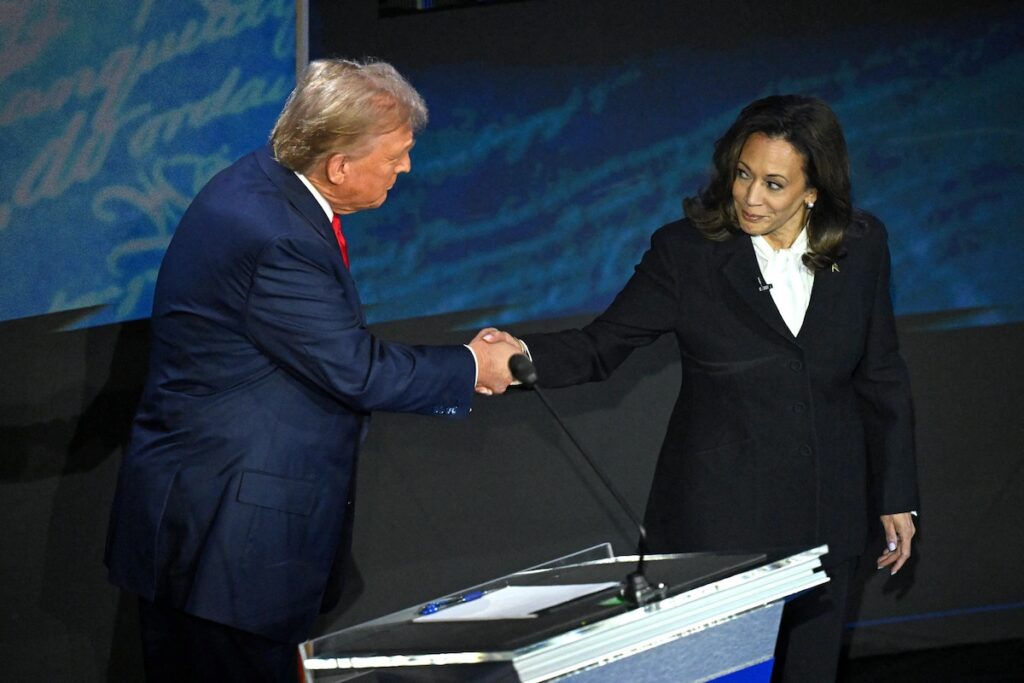
Vice President Kamala Harris shakes hands with former president Donald Trump before their debate in Philadelphia. Credit: /AFP/Getty Images
The first presidential debate of 2024 changed history, leading to the eventual withdrawal of President Joe Biden and the ascension of Kamala Harris to the top of the ticket. Will this recent debate between the vice president and Donald Trump be remembered for having any lasting impact?
In the hours following Kamala Harris and Donald Trump’s first, and possibly last, in-person face-off, political commentators and unofficial polls seemed to largely crown her the winner of the night.
A CNN poll revealed that debate watchers declared Harris a winner by a comfortable 63-37 margin. A YouGov poll had Harris winning by 43-28 among registered voters. Even pundits at Fox News, the conservative TV network, agreed she bested Trump.
Harris rattled Trump, baited him on the size of his rallies, and both she and the moderators pushed back and instantly fact-checked some of his most extravagant claims. While she did not offer much substance on some of the issues most pressing to voters — like immigration — she exuded a level of confidence critics previously said she lacked and left the debate stage beaming as her opponent stewed.
Official post-debate polls of undecided voters have not been released yet and will take several days, but it is not clear whether either candidate’s performance will change many minds.
But did Harris actually win, or did Trump just unravel, making her the winner?
Dozens of experts on debating, political speech, psychology and communications have analysed the performances of both candidates and given their expert opinions on who they feel came out tops. Some said Harris successfully tapped into his weaknesses, while others noted that her strategy aimed at unsettling him, but came at the cost of failing to tell voters more about her own policies. Others have questioned the value of political debates at all, decrying a spectacle of little substance and utility to undecided voters.
According to experts, Trump needed to talk about his policy ideas more rather than relying on leaning into the same dangerous rhetoric about immigrants and reproductive justice. He was correct in pushing VP Harris on the issue about the tariffs and that President Biden did not discontinue these. If he would have stuck to his success in certain policy decisions, the debate may have taken a different turn.
For majority of those who observed the debates keenly, Harris won the debate because she knew exactly what buttons to push to help Trump express himself in the manner that is most revealing of his character. His content is very rarely fact-based and often relies heavily on urging emotional rather than rational responses from viewers.
Giving explicit answers about her policies did not appear to be Harris’s priority. Harris seemed to adopt the persona of the prosecutor during this campaign. Her strategy in the debate was to put Trump on trial and it worked to a large extent.
Some experts contrasted Trump’s demeanour in his debate with the VP to his previous presidential debate this year — which eventually led to President Biden’s withdrawal from the race after a disastrous performance.
In the first debate, while Biden was mainly the agent of his own destruction, Trump did help by sitting back, staying calm, and staying largely on-message.
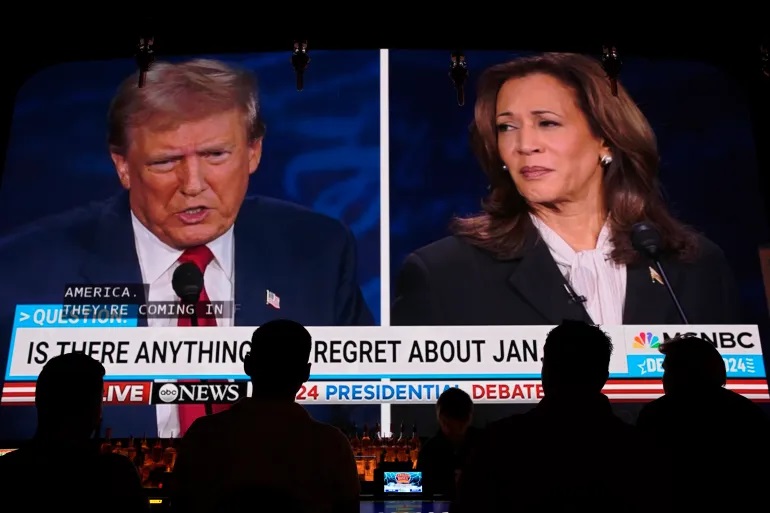
People watch the presidential debate between Republican presidential nominee former President Donald Trump and Democratic presidential nominee Vice President Kamala Harris, Tuesday, September 10, 2024, at the Gipsy Las Vegas in Las Vegas. Credit: AP Photo
In the Harris-Trump debate, by contrast, Harris’s constant needling, jibes, and minor insults appear to have played a large role in causing Trump to perform poorly, with increasingly angry and incoherent diatribes.
So in that sense, Harris did actively cause Trump to lose, though more by actively causing Trump to act badly than by actively presenting herself in the best light.
Harris, by contrast, did little to define herself and her values clearly, foregoing that opportunity in favour of what appeared to be a deliberate effort to unsettle Trump. She didn’t do much to define herself or her policies in the positive sense.
While fact-checkers found plenty to fault Trump on, some commentators warned against ruling Harris the winner, noting that the former president has long proven to be resilient to blunders and preposterous claims that would be career-ending for most other political candidates.
Fairly evaluating a debate is not easy when one candidate seems to be immune to all expectations of truth-telling while the other is expected to meet conventional criteria, such as delivering clarity on policy.
Truth be told, Trump did present an obvious list of falsehoods during the debate — including about the execution of babies, migrants stealing and eating family pets, and Harris meeting with Vladimir Putin just before the invasion of Ukraine.
Had the debate been scored like college competitions are, a judge would have looked at claims made and supported by credible evidence by each participant.
There were many dubious claims and little credible evidence, as well as too many ad hominem attacks, grounding fallacies, non sequiturs, question-begging fallacies, and strawman fallacies on the part of both candidates.
This made the debate an unpleasant experience for any voter seeking a civil discussion of our nation’s problems and potential policy solutions.
That may ultimately be the problem with presidential debates that have become entertainment events more than informative sessions intended to guide voters’ decisions.



